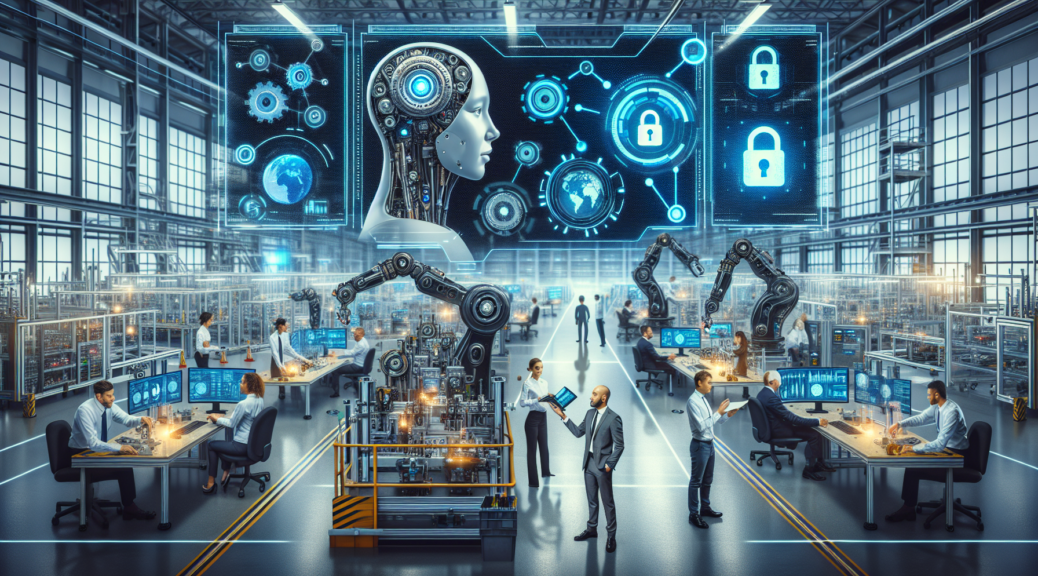
Unlocking Smart Manufacturing Success with AI and Cybersecurity Skills in the Workforce
Unlocking Smart Manufacturing Success with AI and Cybersecurity Skills in the Workforce
In an era where technology is rapidly transforming every aspect of our lives, smart manufacturing has emerged at the forefront, revolutionizing how products are made and delivered. However, as manufacturing processes become more intelligent and interconnected, the demand for a skilled workforce equipped with Artificial Intelligence (AI) and cybersecurity skills has never been more critical. This blog post delves into how these skills are essential for unlocking success in smart manufacturing, ensuring both efficiency and security in the digital age.
The Rise of Smart Manufacturing
Smart manufacturing refers to the use of innovative technologies to improve manufacturing processes. It encompasses the integration of IoT (Internet of Things), AI, robotics, and real-time data analytics to create a more efficient and flexible production environment. This shift not only boosts productivity but also enhances product quality while reducing costs and waste.
Why AI Skills are Imperative
As AI takes center stage in the manufacturing domain, it is crucial for workers to possess the following skills:
- Data Analysis and Interpretation: With AI-driven systems collecting vast amounts of data, the ability to analyze and interpret this data is essential for driving informed decision-making and improving production processes.
- Machine Learning Proficiency: Understanding machine learning models, algorithms, and their applications in manufacturing is vital. It enables workers to develop systems that can predict equipment failures, optimize supply chains, and enhance product quality.
- Programming Skills: Proficiency in programming languages such as Python and R is necessary to create and implement AI solutions tailored to specific manufacturing challenges.
Equipped with these AI skills, the workforce can enhance automated processes, reduce downtime, and innovate within manufacturing environments, leading to reduced costs and increased profitability.
The Critical Role of Cybersecurity
With the rise of smart manufacturing, the threat landscape has expanded, making cybersecurity a top priority.
Key Cybersecurity Skills for Smart Manufacturing
- Threat Intelligence: The ability to identify and understand emerging threats is crucial for developing proactive strategies to combat cyber-attacks.
- Network Security Expertise: Ensuring the security of networks connecting various IoT devices and systems within a manufacturing plant is fundamental to safeguarding sensitive data.
- Incident Response Management: Workers need to be adept at managing and responding to cybersecurity incidents. Swift response is crucial in minimizing damage and restoring normal operations.
As smart manufacturing relies heavily on interconnected systems and devices, cybersecurity measures must be robust and dynamic to fend off potential breaches and protect the integrity of the manufacturing process.
Integrating AI and Cybersecurity for a Future-Proof Workforce
The intersecting worlds of AI and cybersecurity in smart manufacturing present a unique challenge and opportunity for the workforce. Training programs and educational initiatives tailored to develop these skill sets are crucial. Businesses need to focus on a few key strategies:
- Continuous Learning and Development: Establish training programs to keep the workforce updated on the latest AI technologies and cybersecurity threats.
- Collaboration with Educational Institutions: Partner with universities and colleges to develop curricula that emphasize AI and cybersecurity in the context of smart manufacturing.
- Promoting Interdisciplinary Skills: Encourage workers to develop a blend of technical and soft skills, promoting a more adaptable and innovative workforce.
Investing in these areas not only prepares the workforce for current challenges but also positions businesses at the cutting edge of technological advancements of the future.
Conclusion
As smart manufacturing continues to evolve, the role of a skilled workforce adept in AI and cybersecurity becomes increasingly significant. These skills are catalysts for innovation, efficiency, and security, propelling businesses toward continued success in the evolving digital landscape. Embracing this transformation and prioritizing skill development will ensure that smart manufacturing not only survives but thrives in the future, offering remarkable benefits for industries, workers, and consumers alike.



